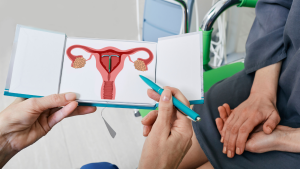
New Recommendations to Make IUD Insertion Less Painful
There is new guidance on pain management for IUD insertion and acknowledgement that providers often underestimate the pain patients feel during their procedures.
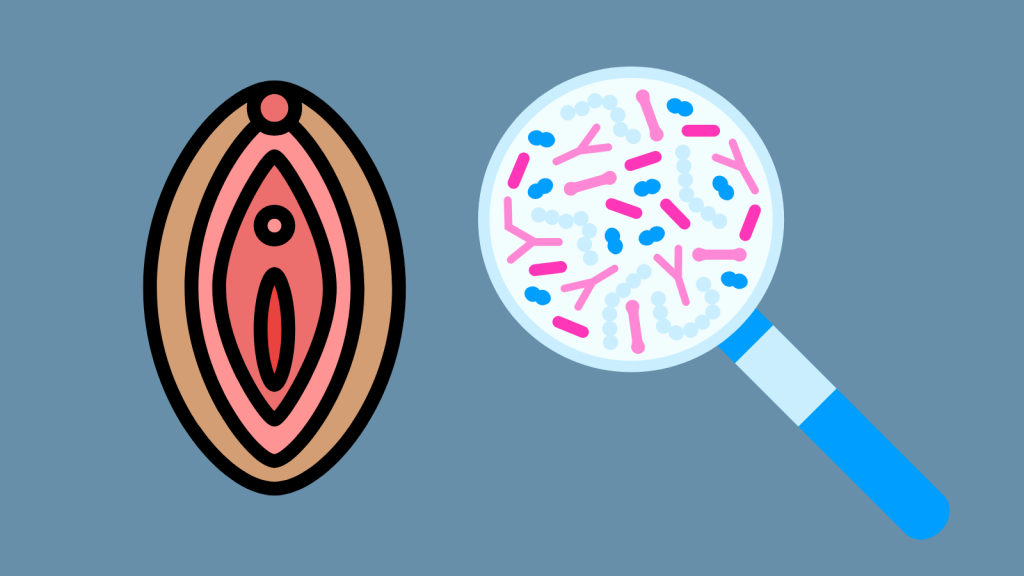
Bacterial vaginosis (BV) is a common gynecologic infection, affecting nearly 29 percent of women in the U.S. While not all women with BV have symptoms, those that do may experience an abnormal vaginal discharge that may be white or gray, watery, and may also have a strong fish-like odor, or vaginal itching and irritation.
In a healthy vagina, there is a balance among many kinds of bacteria. Some kinds of bacteria are considered “helpful” while others are “less helpful.” Helpful bacteria help keep the vagina a little bit acidic. This keeps less helpful bacteria from growing too fast. Sometimes, though, the less helpful bacteria can take over, and the result may be BV.
Anyone with a vagina can get BV, but there are some things that may increase the chance of someone getting BV, like douching or having new or multiple sex partners.
Correct diagnosis is important. Untreated, BV can increase a woman’s risk of sexually transmitted infections (STIs), including HIV. Pregnant people can face additional problems, as BV may cause babies to be born early or with low birth weight.
Women may mistake the generic symptoms of BV—like itching and discharge—for a yeast infection. While it can be tempting to self-diagnose and self treat with over-the-counter products, it’s easy to misdiagnose the problem. In a 2017 ASHA survey, 62 percent of women mistook BV for a yeast infection prior to diagnosis. If it is BV, medication for a yeast infection won’t help.
Only a healthcare provider can accurately diagnose BV. Your provider will likely perform an exam and take a sample of vaginal discharge. The provider may examine the sample under a microscope in the office or send it to a lab to be tested.
BV can be treated with antibiotics, including a one-day, one-dose treatment. However BV can come back in the months after treatment, so if symptoms come back, talk to a provider.
Fortunately, the vagina is designed to keep itself clean with natural, healthy vaginal secretions. You can keep your vagina healthy with the same things that keep your whole body healthy—regular hygiene and a good diet. Here are a few basic tips:
Don’t be fooled by symptoms and try home remedies for treatment. Those symptoms could be BV.
In this episode of the ASHA podcast Jenelle Marie Pierce, health educator and executive director of the TheSTIProject.com, shares her experiences in coping with BV and offers tips on talking with health care providers.
This one-page, printable PDF offers all the basics on BV, from symptoms, to diagnosis, to treatment.
Interested in other educational fact sheets? Check out other free ASHA publications and fact sheets here.

There is new guidance on pain management for IUD insertion and acknowledgement that providers often underestimate the pain patients feel during their procedures.
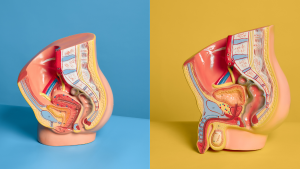
Our reproductive health is an important part of our sexual health and our overall health. It includes our reproductive organs and our ability to get pregnant or get someone pregnant when we choose.

Anyone who is having penis-in-vagina sex runs the risk of getting pregnant every time they have sex. Even if it’s your first time. Even if you have your period. Even if it’s a full moon and Mercury is in retrograde.
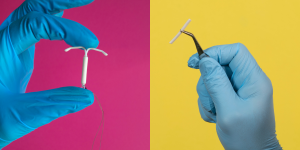
LARC methods are safe, reliable, and prevent pregnancy for years. For many people they are a great choice, but everyone has personal preferences for what fits in to their lifestyle and health profile.

Infertility can stem from factors affecting both men and women. Sometimes, these are related to sexually transmitted infections.

The Biden Administration proposed new rules designed to make getting contraception easier and less expensive.
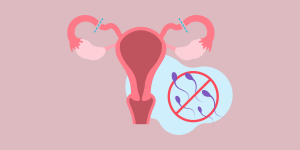
A new study says we might be overestimating just how good tubal ligation (“getting your tubes tied” ) is at preventing pregnancy.

Public health experts have said that every case of congenital syphilis is a failure of STI screening and prenatal care. A new study looked more closely at cases to see what factors in a pregnant person’s life were most associated with congenital syphilis.
ASHA believes that all people have the right to the information and services that will help them to have optimum sexual health. We envision a time when stigma is no longer associated with sexual health and our nation is united in its belief that sexuality is a normal, healthy, and positive aspect of human life.
ABOUT
GET INVOLVED
ASHA WEBSITES
GET HELP
© 2026 American Sexual Health Association
We need to know if we can keep you company during this visit. We are useful for making this site work.
We use cookies to enhance your browsing experience. You can choose which cookies you want to accept.
Necessary cookies help make a website usable by enabling basic functions like page navigation and access to secure areas. The website cannot function properly without these cookies.
| Cookie | Provider | Purpose | Expiry |
|---|---|---|---|
digiconsent | This website | Stores your cookie consent preferences. | 1 year |
wordpress_logged_in_* | WordPress | Identifies logged-in users and their authentication details. | 14 days / Session |
wordpress_sec_* | WordPress | Stores authentication details for secure areas. | 14 days / Session |
wp-settings-* | WordPress | Stores user interface customization preferences. | 1 year |
wp-settings-time-* | WordPress | Stores the time when wp-settings cookie was set. | 1 year |
Analytics cookies help us understand how visitors interact with our website by collecting and reporting information anonymously. This helps us improve our website.
| Cookie | Provider | Purpose | Expiry |
|---|---|---|---|
_ga | Registers a unique ID to generate statistical data on website usage. | 2 years | |
_ga_* | Used by Google Analytics to store and count pageviews. | 2 years |
Marketing cookies are used to track visitors across websites. The intention is to display ads that are relevant and engaging for the individual user.
Functional cookies enable the website to provide enhanced functionality and personalization. They may be set by us or by third party providers.